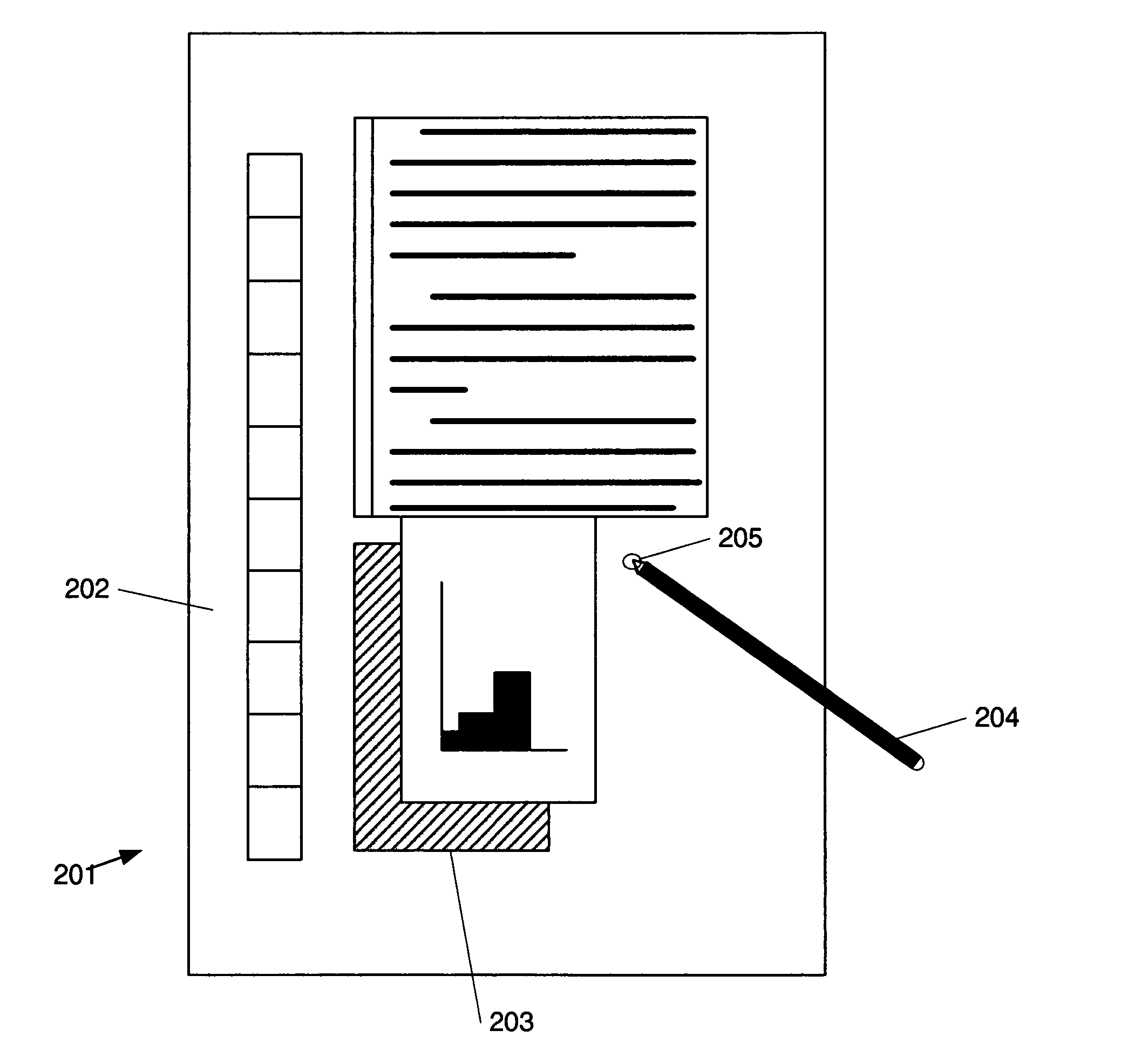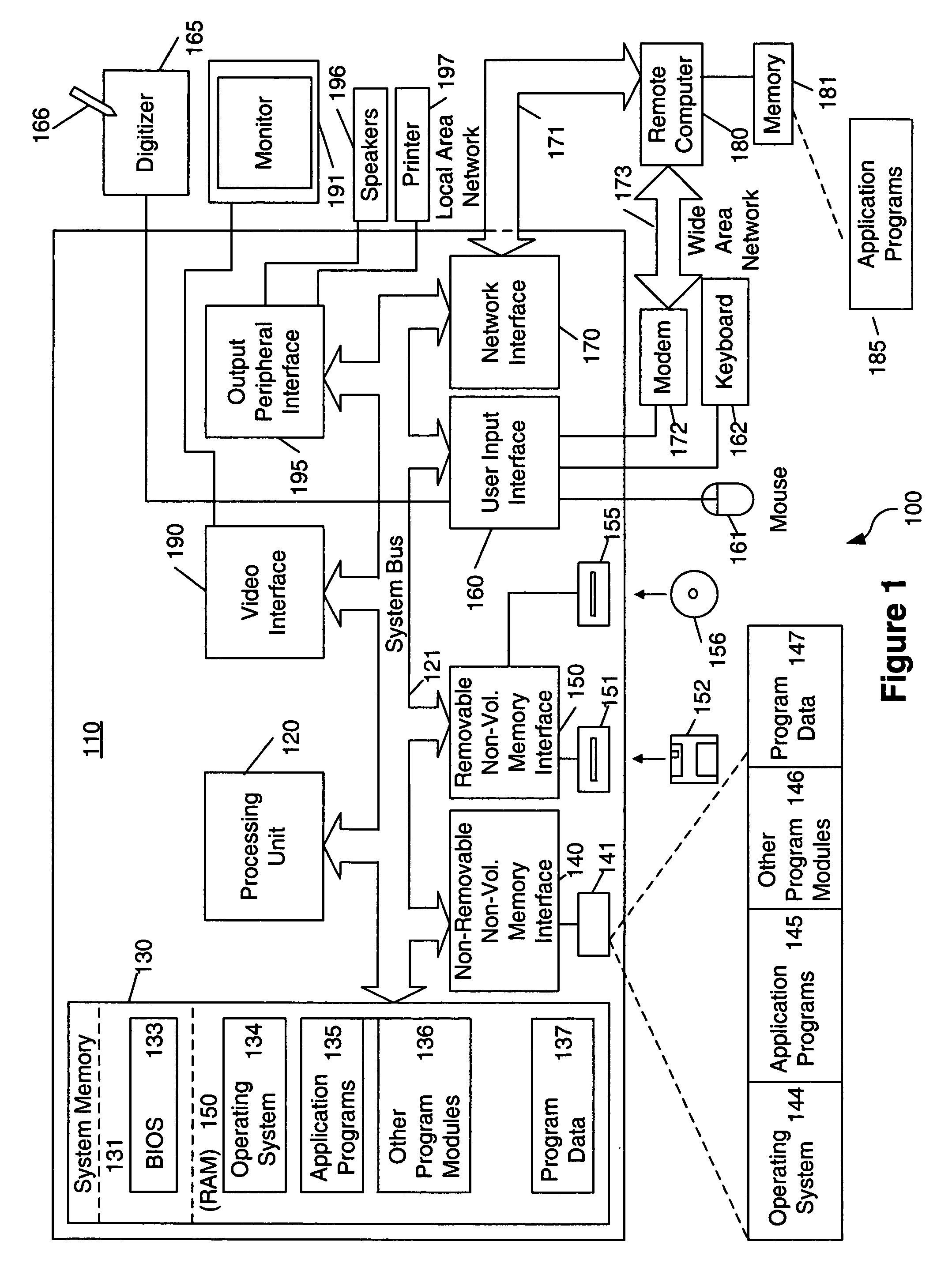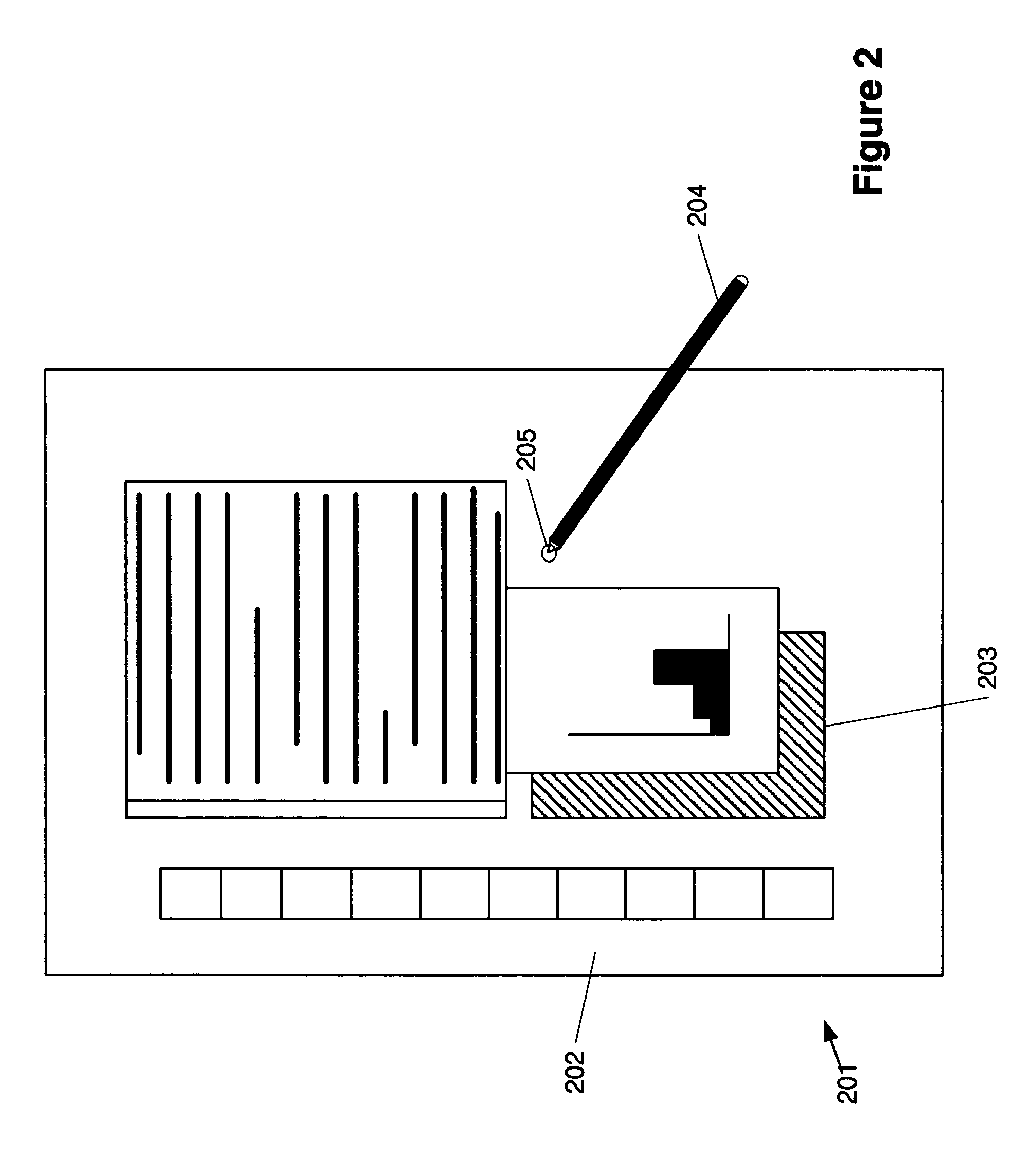Asynchronous and synchronous gesture recognition
a gesture recognition and synchronous technology, applied in the field of computing systems, can solve the problems of user frustration, providing too many false positives and false negatives, and conventional gesture recognition
- Summary
- Abstract
- Description
- Claims
- Application Information
AI Technical Summary
Benefits of technology
Problems solved by technology
Method used
Image
Examples
Embodiment Construction
[0017] Aspects of the present invention relate to recognizing a flick gesture.
[0018] This document is divided into sections to assist the reader. These sections include: characteristics of ink, terms, general-purpose computing environment, gestures, a flick gesture, flick gesture determination, training, and illustrative implementations.
[0019] It is noted that various connections are set forth between elements in the following description. It is noted that these connections in general and, unless specified otherwise, may be direct or indirect and that this specification is not intended to be limiting in this respect.
Characteristics of Ink
[0020] As known to users who use ink pens, physical ink (the kind laid down on paper using a pen with an ink reservoir) may convey more information than a series of coordinates connected by line segments. For example, physical ink can reflect pen pressure (by the thickness of the ink), pen angle (by the shape of the line or curve segments and t...
PUM
 Login to View More
Login to View More Abstract
Description
Claims
Application Information
 Login to View More
Login to View More - R&D
- Intellectual Property
- Life Sciences
- Materials
- Tech Scout
- Unparalleled Data Quality
- Higher Quality Content
- 60% Fewer Hallucinations
Browse by: Latest US Patents, China's latest patents, Technical Efficacy Thesaurus, Application Domain, Technology Topic, Popular Technical Reports.
© 2025 PatSnap. All rights reserved.Legal|Privacy policy|Modern Slavery Act Transparency Statement|Sitemap|About US| Contact US: help@patsnap.com



